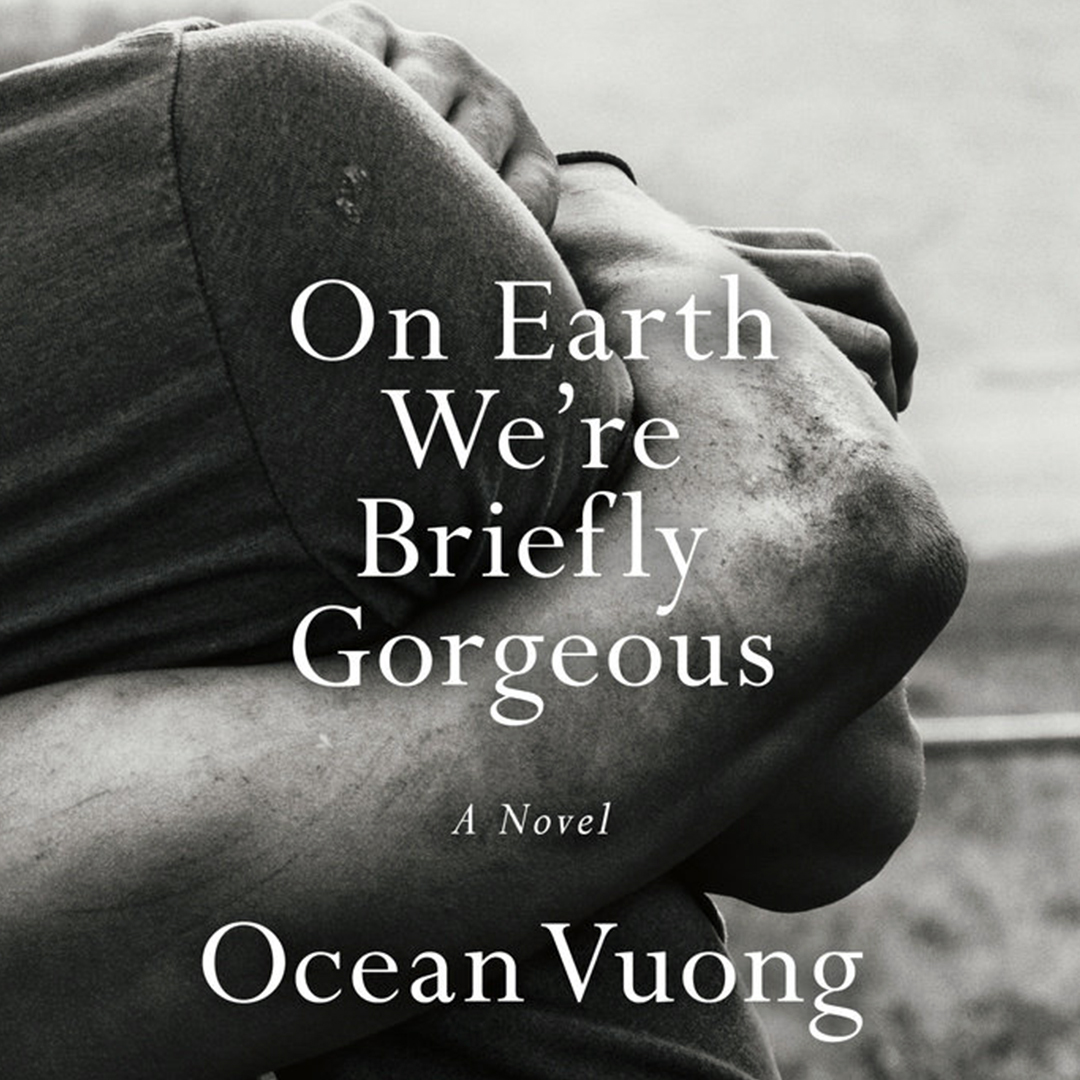October Book Club: Review on On Earth We’re Briefly Gorgeous by Ocean Vuong
“Can art make the impossible thinkable and the knowable felt?”
The poet, novelist, and newly-minted MacArthur fellow Ocean Vuong invokes this question in a prelude to a recent published conversation with his one-time teacher Ben Lerner, another poet- novelist. It’s a big question, weighty and boundless enough that it might seem ponderous in many contexts, but it takes on a whole new energy and urgency in the context of Vuong’s genre-bending work and his conversation with Lerner. It’s hard to imagine two contemporary writers more attuned to the possibilities of language and the ways it can be used for good or ill, to tug at the borders of social and societal constructs or reinforce them.
Vuong’s acute and impassioned attention to language and its relationship to the social world inflects both his acclaimed poetry and his first novel, On Earth We’re Briefly Gorgeous, which I finished in August in a mad dash and have been revisiting ever since. The novel—written as a letter from the narrator to his mother, who cannot read—gracefully blurs the line between fiction and nonfiction and points towards new and invigorating directions for both genres.
In 2017, Vuong told Viet Thanh Nguyen, “I wrote one book of poems, but I don’t see myself as only a poet, don’t see the genre as these fixed borders.” This year, in a Paris Review interview, he expanded on that theme: “I’m not sure a genre is a destination so much as a way of thinking, a tendency of inquiry…. I understand genres to be as fluid as genders. Our lives are full of restrictions—jobs, bills, time, gravity, all of this impinging on us—but to write is to gift yourself the freedom of choice and possibility. That feels truly precious to me.”
On Earth We’re Briefly Gorgeous exercises that gift of freedom fully, abundantly. Formally, the book is many things—a novel so lyrical it occasionally borders on poetry, an epistolary narrative unafraid to transcend the conventions of traditional letter-writing, and an act of collage that
Written by John Shakespear
Posted on October 28

